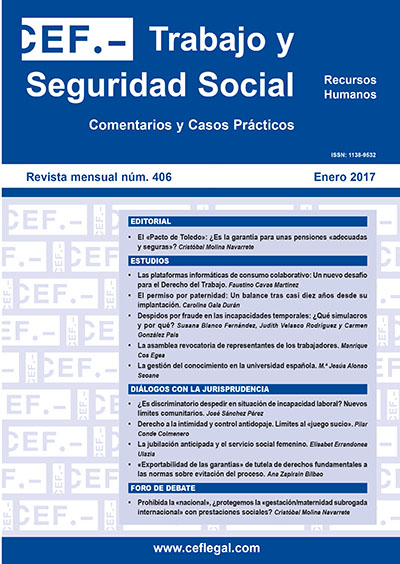Once the «national» has been prohibited, do we protect «international gestational/maternal surrogacy» via social benefits?
DOI:
https://doi.org/10.51302/rtss.2017.1968Keywords:
gestational surrogacy, maternity benefits, best interests of the child and reproductive tourismAbstract
All kinds of gestational surrogacy are prohibited in Spain, moreover, some are even regarded as criminal law matters. However, if those same practices are carried on in any other country in the world where they are considered legal, Spanish law will not only acknowledge them as legitimate, but also a gestational surrogacy benefit may very well be granted. That is what has just been confirmed by several High Court rulings out of its Labor Division, thus contradicting the prohibition stated by its very own Civil Division. As has ultimately been argued, even factual situations, although banned, deserve protection if the best interests of the child are at stake. Of course, intense criticism arises from within the Labor Division against this recently laid unifying criterion. This minority of the judiciary considers that the evasion hidden behind transnational gestational surrogacy cannot be legitimated, nor the priority protection of the best interests of the child requires such violation of our statutory values and principles (public policy).


















